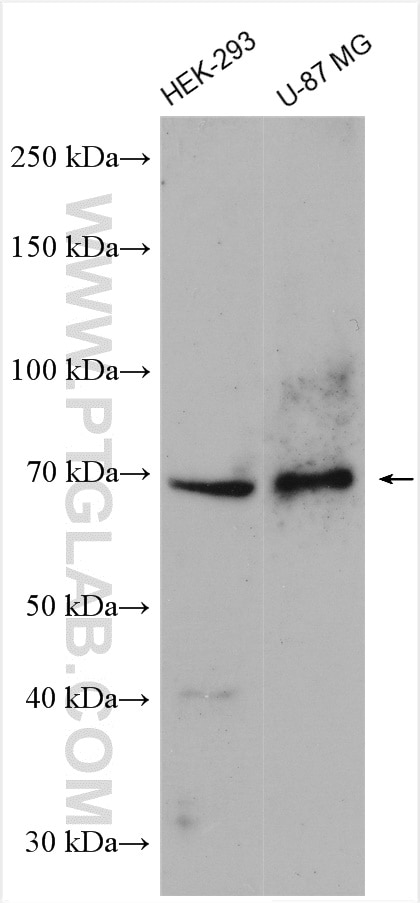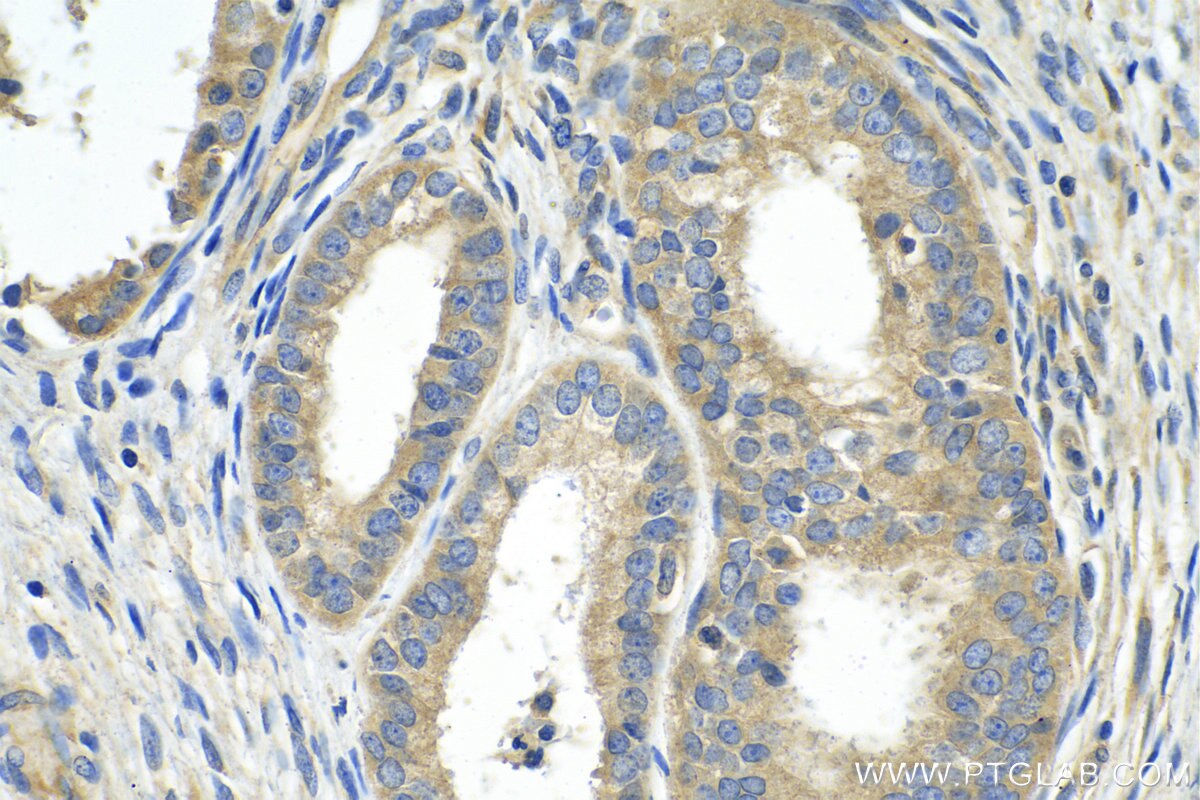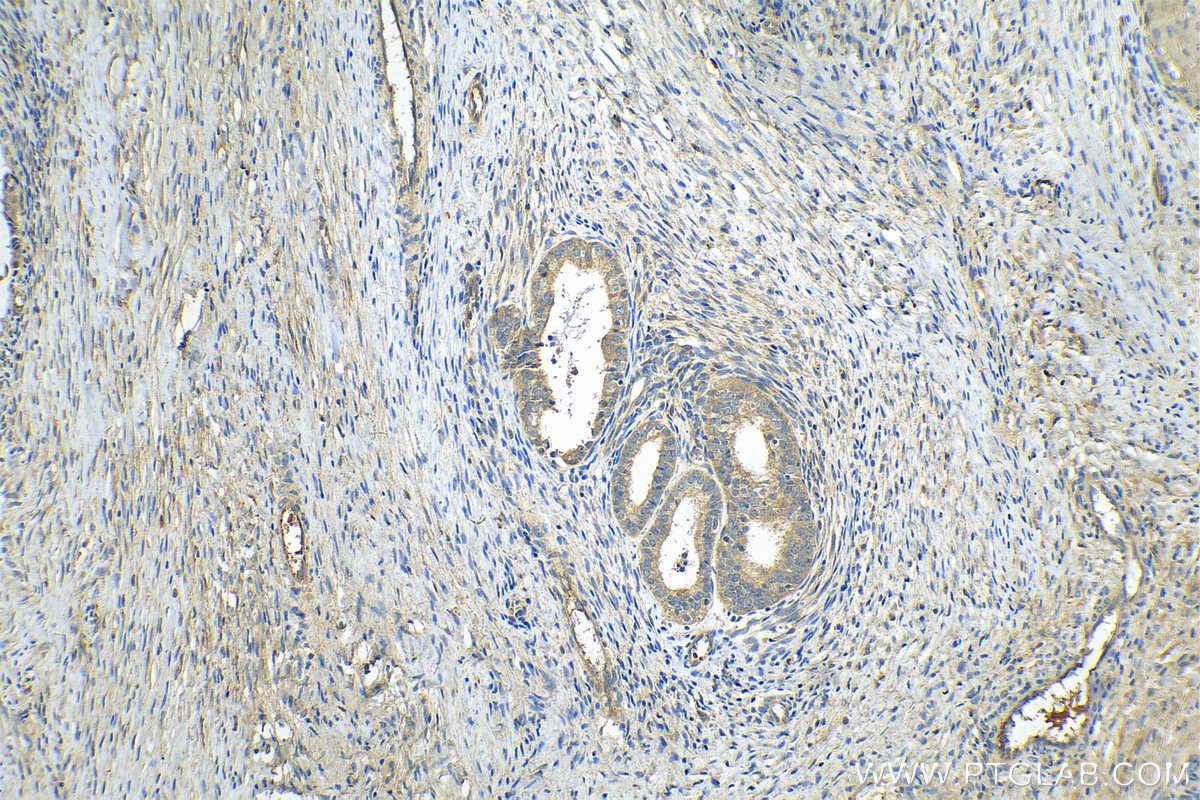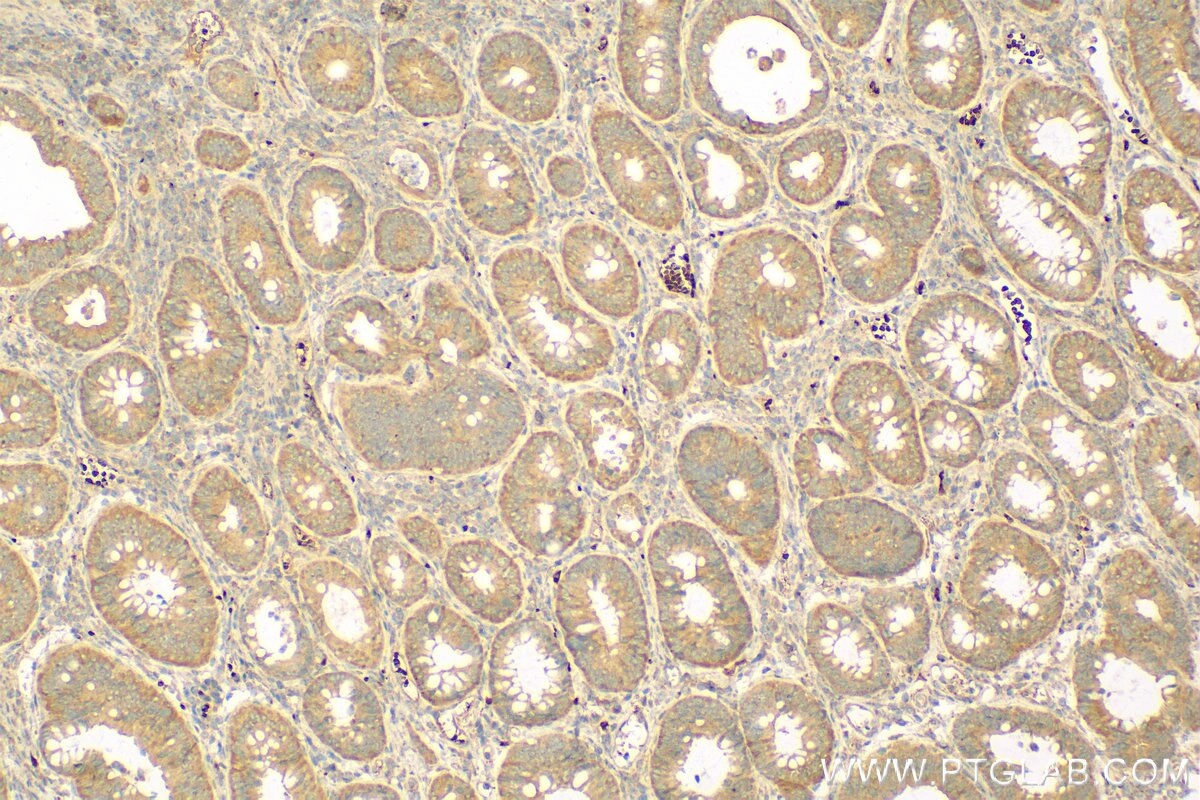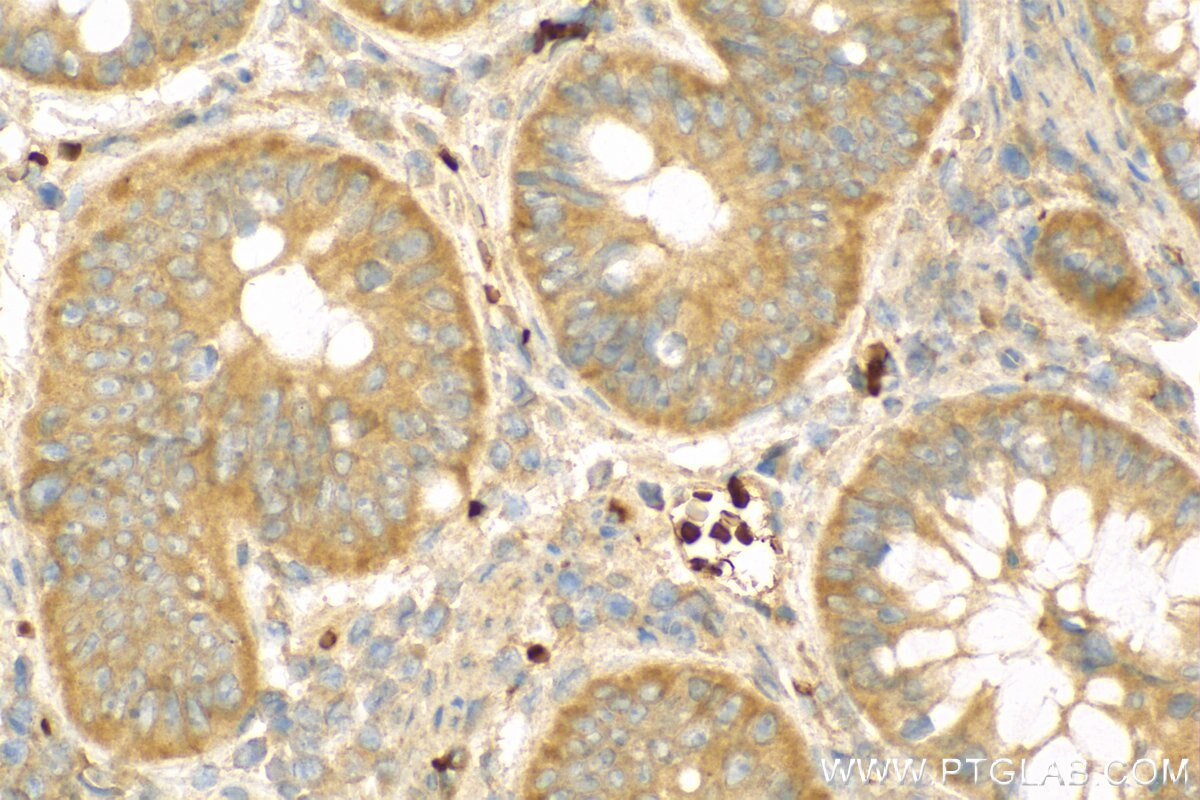Tested Applications
| Positive WB detected in | HEK-293 cells, U-87 MG cells |
| Positive IHC detected in | human ovary tumor tissue, human colon cancer tissue Note: suggested antigen retrieval with TE buffer pH 9.0; (*) Alternatively, antigen retrieval may be performed with citrate buffer pH 6.0 |
Recommended dilution
| Application | Dilution |
|---|---|
| Western Blot (WB) | WB : 1:500-1:1000 |
| Immunohistochemistry (IHC) | IHC : 1:250-1:1000 |
| It is recommended that this reagent should be titrated in each testing system to obtain optimal results. | |
| Sample-dependent, Check data in validation data gallery. | |
Product Information
14778-1-AP targets AIFM3 in WB, IHC, ELISA applications and shows reactivity with human, mouse, rat samples.
| Tested Reactivity | human, mouse, rat |
| Host / Isotype | Rabbit / IgG |
| Class | Polyclonal |
| Type | Antibody |
| Immunogen |
CatNo: Ag6278 Product name: Recombinant human AIFM3 protein Source: e coli.-derived, PET28a Tag: 6*His Domain: 355-598 aa of BC032485 Sequence: AHSVSVVELEETPFRRFLGERVGRALMKMFENNRVKFYMQTEVSELRGQEGKLKEVVLKSSKVVRADVCVVGIGAVPATGFLRQSGIGLDSRGFIPVNKMMQTNVPGVFAAGDAVTFPLAWRNNRKVNIPHWQMAHAQGRVAAQNMLAQEAEMSTVPYLWTAMFGKSLRYAGYGEGFDDVIIQGDLEELKFVAFYTKGDEVIAVASMNYDPIVSKVAEVLASGRAIRKREVETGDMSWLTGKGS Predict reactive species |
| Full Name | apoptosis-inducing factor, mitochondrion-associated, 3 |
| Calculated Molecular Weight | 67 kDa |
| Observed Molecular Weight | 67 kDa |
| GenBank Accession Number | BC032485 |
| Gene Symbol | AIFM3 |
| Gene ID (NCBI) | 150209 |
| RRID | AB_2258090 |
| Conjugate | Unconjugated |
| Form | Liquid |
| Purification Method | Antigen affinity purification |
| UNIPROT ID | Q96NN9 |
| Storage Buffer | PBS with 0.02% sodium azide and 50% glycerol, pH 7.3. |
| Storage Conditions | Store at -20°C. Stable for one year after shipment. Aliquoting is unnecessary for -20oC storage. 20ul sizes contain 0.1% BSA. |
Background Information
Apoptosis-inducing factor, mitochondrion-associated 3 (AIFM3) is a mitochondrial protein/flavoenzyme and its gene is located on chromosome 22q11.21. Mature human AIFM3 protein consists of 598 amino acids with a molecular weight of 66 kDa and is predominantly localized in the mitochondria. AIFM3 is widely expressed in many tissues, and breast cancer tissues and cholangiocarcinoma tissue (PMID: 32664187).
Protocols
| Product Specific Protocols | |
|---|---|
| IHC protocol for AIFM3 antibody 14778-1-AP | Download protocol |
| WB protocol for AIFM3 antibody 14778-1-AP | Download protocol |
| Standard Protocols | |
|---|---|
| Click here to view our Standard Protocols |

